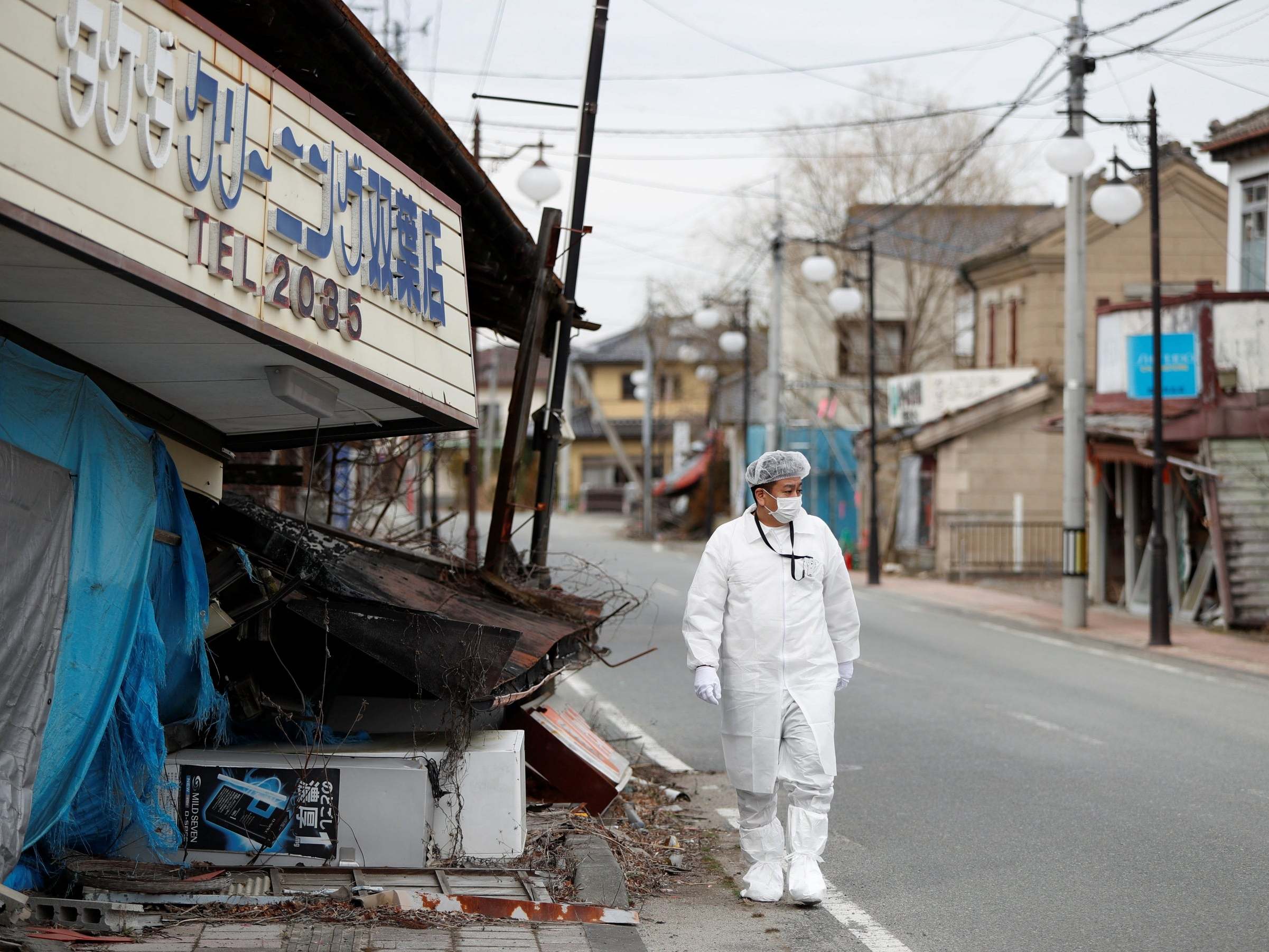‘I’m overwhelmed with emotion’: Japanese town closed for nine years reopens to residents
Futaba officials hope people will return, but anxiety over radiation from Fukushima disaster may prove hindrance

Your support helps us to tell the story
From reproductive rights to climate change to Big Tech, The Independent is on the ground when the story is developing. Whether it's investigating the financials of Elon Musk's pro-Trump PAC or producing our latest documentary, 'The A Word', which shines a light on the American women fighting for reproductive rights, we know how important it is to parse out the facts from the messaging.
At such a critical moment in US history, we need reporters on the ground. Your donation allows us to keep sending journalists to speak to both sides of the story.
The Independent is trusted by Americans across the entire political spectrum. And unlike many other quality news outlets, we choose not to lock Americans out of our reporting and analysis with paywalls. We believe quality journalism should be available to everyone, paid for by those who can afford it.
Your support makes all the difference.Residents of a Japanese town that was subjected to evacuation orders following the Fukushima nuclear disaster have been allowed to return as officials partially lifted the entry ban.
Futaba, located about 4km (2.4 miles) from the wrecked nuclear plant, was reopened on Wednesday ahead of the Tokyo Olympics.
About 7,000 residents were forced to flee their homes on 11 March 2011 after the 9.1-magnitude Tohoku earthquake triggered the meltdown of three reactors.
The lifting of the evacuation order comes weeks before the Olympic torch is due to arrive in another town in the Fukushima prefecture, and is expected to travel through Futaba on its relay journey.
However, unrestricted access only applies to a one-square-mile area near Futaba's main train station, which is due to reopen later in March, reconnecting it with the rest of the region for the first time since the disaster.
Futaba officials placed a signboard at their new town office after a checkpoint gate was opened at midnight on Tuesday.
The town's mayor, Shiro Izawa, told reporters: “I’m overwhelmed with emotion as we finally bring part of our town operations back to our home town.
“I pledge to steadily push forward our recovery and reconstruction.”
Town officials said they hoped former residents of Futaba would return, but persistent worries around radiation may stop them from doing so.
According to The Japan Times, many residents forged new lives elsewhere after being evacuated, with just 10 per cent saying they plan to return.
The disaster at the Daiichi nuclear power plant prompted the Japanese government to declare a 20km-radius evacuation zone around the plant when it released massive amounts of radiation into the atmosphere.
Evacuation orders will also be partially lifted for the towns of Okuma, on Wednesday, and Tomioka, on 10 March.
All three towns were located in the seven municipalities where the government set out “difficult-to-return” zones following the accident.
Japanese officials met in January to discuss the reopening of the towns. The prime minister, Shinzo Abe, said he hoped that restoration in the prefecture would be accelerated in anticipation of an influx of visitors for the Olympics.
Join our commenting forum
Join thought-provoking conversations, follow other Independent readers and see their replies
0Comments